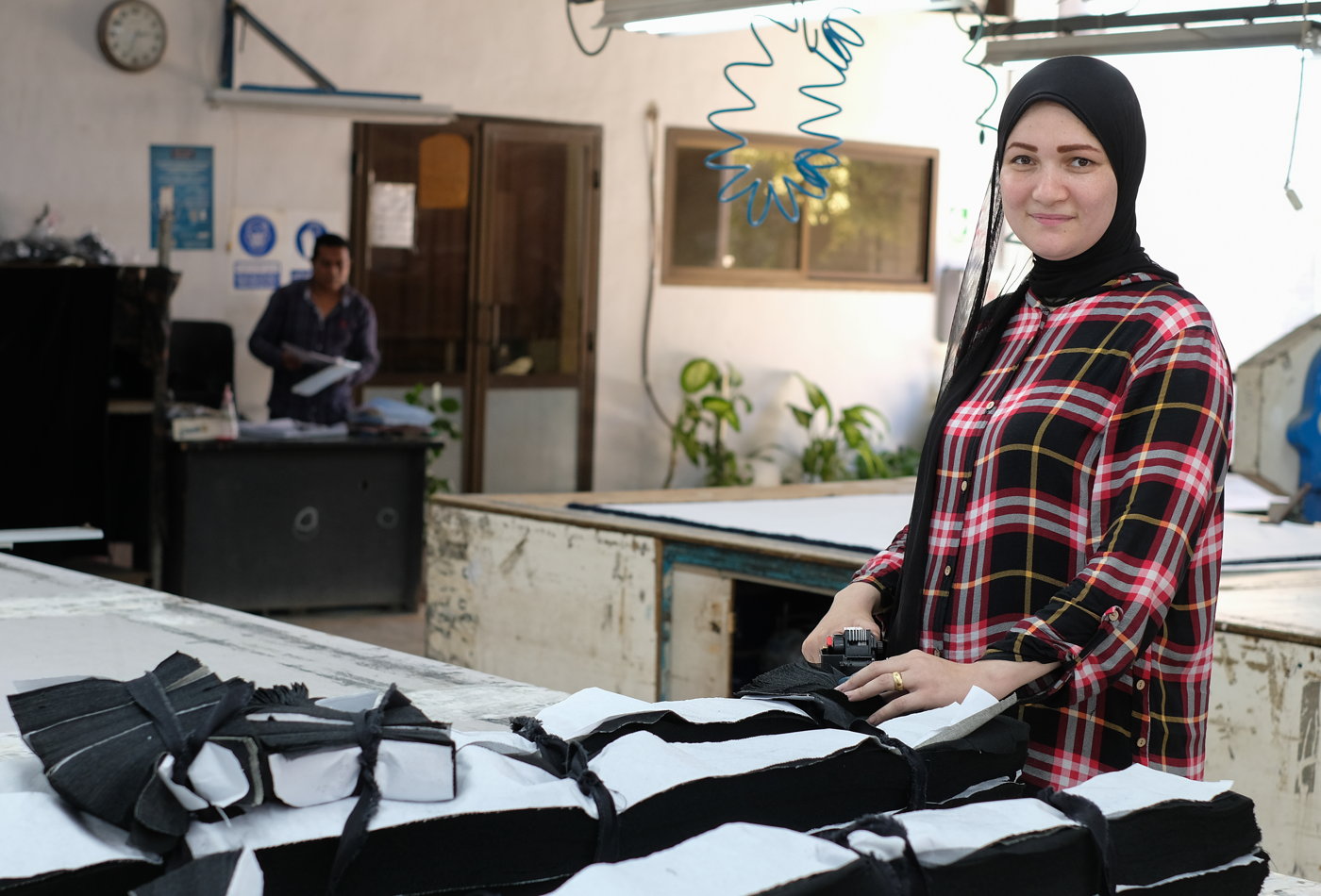
Key points:
- Egypt’s vibrant financial ecosystem creates opportunities for increased efficiencies in global supply chains and advanced financial inclusion for garment workers
- Training that covers financial management topics such as financial planning in addition to account usage, enables workers to increase their financial resilience
- Taking gender norms into account during wage digitalization is essential to ensure both women and men benefit equally
“Paying workers digitally, when supported with gender-focused financial literacy training, increases financial inclusion and improves workers’ financial health. This has many positive knock-on effects for workers and their families, as clearly demonstrated by the results of this successful program in Egypt, by RISE and Mastercard Center for Inclusive Growth.”
M&S Clothing and Home Ethical Trade Team
Egypt has made strides towards financial inclusion and digital payments as part of its Vision 2030 strategy, with the Central Bank of Egypt (CBE) leading on this ongoing priority. However, many garment workers are underbanked and only 26% of adults have a financial institution account. Whilst digital payments are becoming more and more popular, many workers still prefer cash due to a lack of trust in the digital economy and limited merchant acceptance in areas where they live.
RISE and Mastercard Center for Inclusive Growth have been supporting and scaling wage digitalization that considers the needs of women in the garment sector in Egypt since 2019. The partnership worked with Center for Development Services (CDS) to support nine garment factories supplying RISE members in five governorates representing 24,000 workers (43% women, 56% under 35) with gender-sensitive transition from cash to digital wages. Workers’ training delivered in parallel led to:
- increased technical knowledge and confidence to use a range of financial products and services.
- improved money management skills including planning, budgeting, saving and financial decision making with families.
The program results show clear benefits to both employers and workers.
Employers are reducing payroll costs and saving production time
Following the transition from cash to digital wages, employers reported a 53% reduction in payroll admin costs. The digital payroll addresses the risk of transporting significant amounts of cash. It improves managers’ work environment, removing the ‘huge headache’ caused by paying workers in cash monthly, as one factory manager describes.
In addition, workers no longer need to leave the production line to collect their wages, which was estimated to take around 15 minutes per pay day. For an average factory of 1,500 workers, this represents a saving of around 375 hours of production time every month.
“We have digitized wages because the cash payroll was time taking to count and distribute the wages into envelopes with the right denominations and we would lose production time each payday. The government has a focus on financial inclusion and we wanted to be part of that. We took our time and digitized in batches of 100 workers, going line by line, and arranged for the bank to provide training for groups of workers. At first, workers were worried about using cards but following the training, they are asking to be paid into accounts.”
Nader Nabil Bakbeshy, CEO, Sheeba garment factory
Workers are becoming active users of financial products and services and prioritising saving
After financial capability training, women and men workers reported increased access and usage of financial products and services and improved management of their expenses. There is a gender gap in transactions with men making more transactions than women. Most workers said they used their account to make payments to friends or family members and to buy airtime. User-centric instant payment apps such as ‘Instapay’, which is licensed and regulated by CBE, have been key to driving usage.
Despite challenging economic conditions in Egypt, workers realise the importance of saving money for the future and have increased their savings behavior with most preferring to save through gam’eya savings groups. Whilst saving is traditionally the responsibility of women, men increased their saving more after the program. The cost of living crisis has led to declines in workers’ confidence in managing both expected and unexpected expenses.
“I am paid into an account and can use the ATM myself and I’m comfortable using my debit card in the supermarket. I also use the banking app to check my balance. I have learnt how to create a financial plan and distinguish between my wants and needs. I have created a monthly budget and am managing my expenses better. Everything has become more expensive, and I am not able to save although sometimes I do use the gam’eya. If I need extra money, I borrow from my friends. I am not working for just receiving my salary to feed my kids and educate them, but I need to work and save money to reach my goals.”
Basma, Garment Worker, Egypt
How can key stakeholders work together to scale progress on responsible wage digitalization?
The garment sector, working with the financial service industry and other key stakeholders can be a catalyst for increasing financial inclusion and improving financial health for garment workers through responsible wage digitalization.
Key areas which stakeholders can work together on include: promoting payroll digitalization through support and incentives, providing financial capability training for workers, and supporting the development of the financial ecosystem to reduce reliance on cash. Considering the specific needs of women in design is crucial.
Read more about RISE Financial Health and supporting the garment sector in Egypt in the RISE Financial Health Egypt report and see the RISE Digital Wages Toolkit for Managers for advice to factories on transitioning from cash to digital wages.
- Financial Health
- Egypt
 Kamrul Hossain Shuvo
Kamrul Hossain Shuvo
 Charlotte Pallangyo
Charlotte Pallangyo

